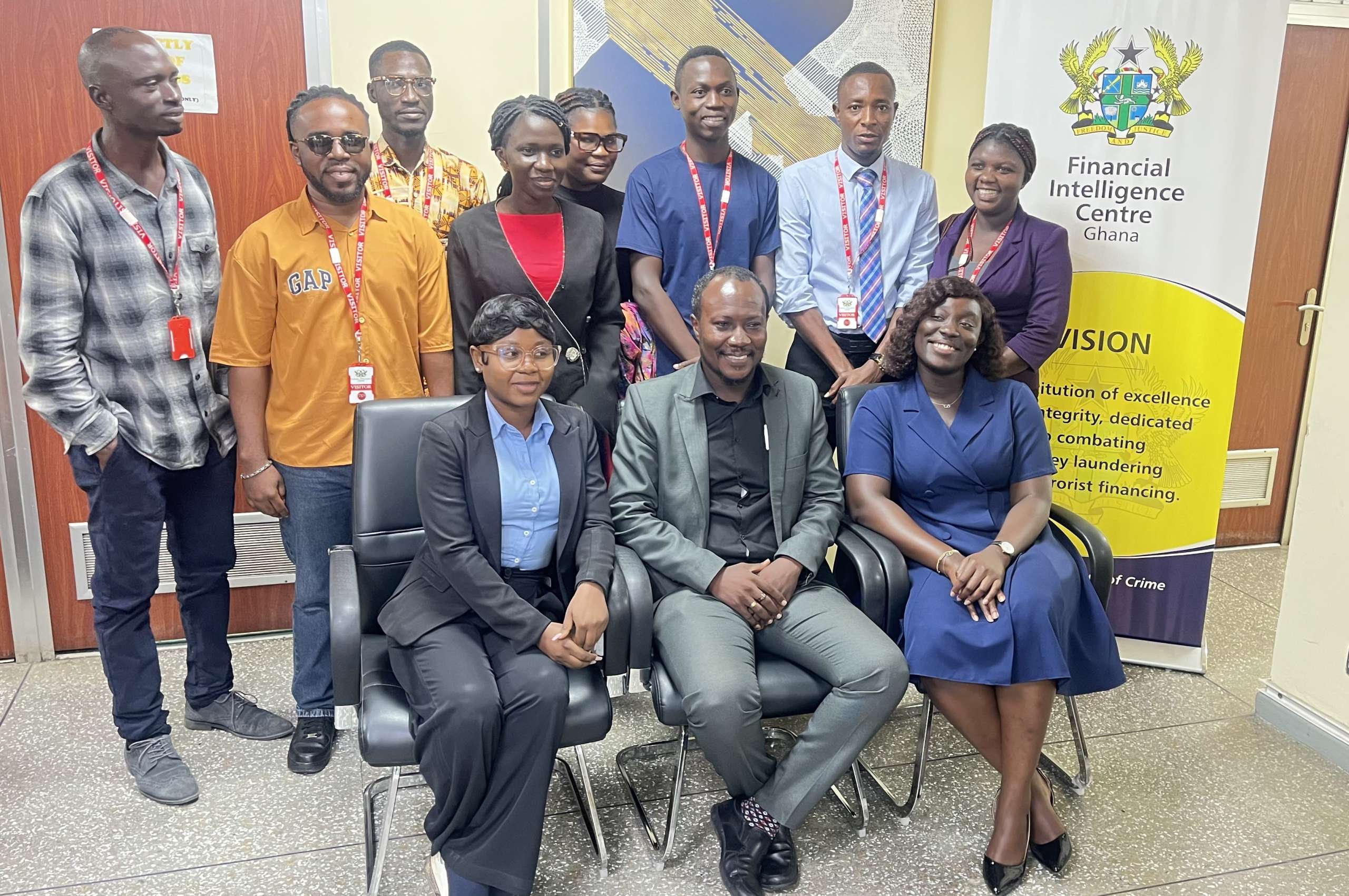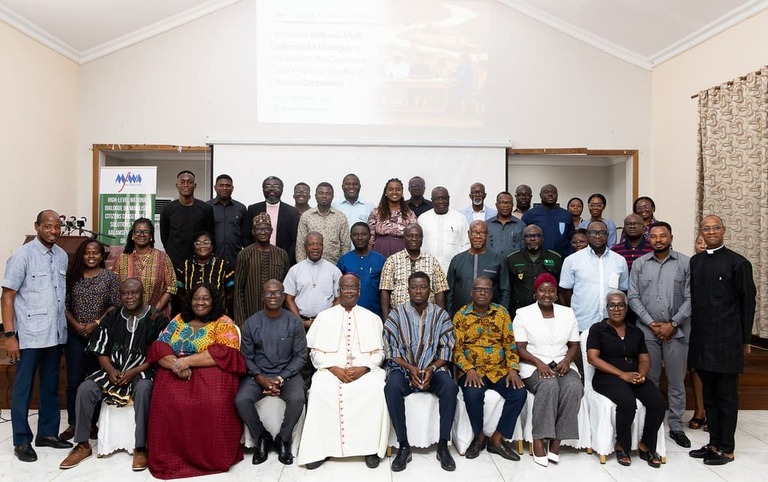Fellows of the sixth cohort of the Next Generation Investigative Journalism (NGIJ) Fellowship on Wednesday, 6th August, 2025 paid a learning visit to the Financial Intelligence Centre (FIC) as part of key activities under the Fellowship.
The group was met by some key heads of units and representatives including the Acting Deputy Chief Executive Officer (CEO) and the Head of Analysis unit. Following an introduction by the Fellowship coordinator, Josephine Badu-Nyarko, who stated the purpose of the visit, the Acting Deputy CEO warmly welcomed the group and expressed his delight in hosting the journalists.
This meeting is the first of its kind to happen at the Centre and it shows their commitment to foster collaboration with the media. After his brief remarks, the Acting Deputy CEO took the time to lead the first part of the session by going through the functions of the FIC and how they gather intelligence to combat illicit financial flows.
The FIC is established by Section 8 of the Anti-Money Laundering Act, 2020 (Act 1044), to serve as the center around which a robust Anti-Money Laundering, Countering the Financing of Terrorism and Proliferation of weapons of mass destruction (AML/CFT&P) Regime in Ghana revolves.
They receive, analyse and disseminate financial intelligence to the appropriate accountability institutions for further action. The Centre also plays a key role in Ghana’s compliance with international standards on AML/CFT including those set by the Financial Action Task Force (FATF).
The Financial Intelligence Centre is a member of the Egmont Group of Financial Intelligence Units, an international group that fosters collaboration to speed the exchange of financial intelligence among Financial Intelligence Units (FIUs) worldwide.
The Head of Analysis at the FIC reiterated the importance to collaborate with the media as well in combatting IFFs. The media as the fourth arm of government must enrich themselves with skills and knowledge to educate the public on illicit activities that enable illicit financial flows.
He urged the fellows to create awareness and to tell stories that will leave a positive impact and not only be messengers of doom. This, he said, would increase appreciation of issues bordering on IFFs and anti-money laundering and could reduce the rate of money laundering and other illegal activities.
Officials of the Financial Intelligence Centre also urged the media to collaborate with them to give intelligence instead of reporting half baked information which makes culprits of IFFs cover their tracks in turn making the Centre’s work difficult.






